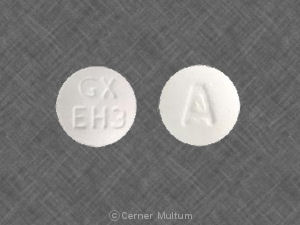Alkeran Disease Interactions
There are 4 disease interactions with Alkeran (melphalan).
Antineoplastics (applies to Alkeran) infections
Major Potential Hazard, High plausibility. Applicable conditions: Infection - Bacterial/Fungal/Protozoal/Viral
Because of their cytotoxic effects on rapidly proliferating tissues, antineoplastic agents frequently can, to varying extent, induce myelosuppression. The use of these drugs may be contraindicated in patients with known infectious diseases. All patients should be instructed to immediately report any signs or symptoms suggesting infection such as fever, sore throat, or local infection during antineoplastic therapy. Close clinical monitoring of hematopoietic function is recommended.
References (29)
- (2002) "Product Information. Methotrexate (methotrexate)." Lederle Laboratories
- (2001) "Product Information. Platinol (cisplatin)." Bristol-Myers Squibb
- (2001) "Product Information. Vepesid (etoposide)." Bristol-Myers Squibb
- (2001) "Product Information. Novantrone (mitoxantrone)." Immunex Corporation
- (2001) "Product Information. Mutamycin (mitomycin)." Bristol-Myers Squibb
- (2001) "Product Information. Ifex (ifosfamide)." Bristol-Myers Squibb
- (2001) "Product Information. Thiotepa (thiotepa)." Hikma USA (formerly West-Ward Pharmaceutical Corporation)
- (2001) "Product Information. Fludara (fludarabine)." Berlex Laboratories
- (2001) "Product Information. Idamycin (idarubicin)." Pharmacia and Upjohn
- (2001) "Product Information. Matulane (procarbazine)." Roche Laboratories
- (2001) "Product Information. DTIC-Dome (dacarbazine)." Bayer
- (2001) "Product Information. Adriamycin PFS (doxorubicin)." Pharmacia and Upjohn
- (2001) "Product Information. Leustatin (cladribine)." Ortho Biotech Inc
- (2001) "Product Information. Gemzar (gemcitabine)." Lilly, Eli and Company
- (2001) "Product Information. Hycamtin (topotecan)." SmithKline Beecham
- (2001) "Product Information. Taxotere (docetaxel)." Rhone Poulenc Rorer
- (2001) "Product Information. Taxol (paclitaxel)." Bristol-Myers Squibb
- (2001) "Product Information. Nipent (pentostatin)." Hospira Inc
- (2001) "Product Information. Tabloid (thioguanine)." Prasco Laboratories
- (2001) "Product Information. Xeloda (capecitabine)." Roche Laboratories
- (2022) "Product Information. Alkeran (melphalan)." Glaxo Wellcome
- (2001) "Product Information. Purinethol (mercaptopurine)." Glaxo Wellcome
- "Product Information. Leukeran Tablets (chlorambucil)." Glaxo Welcome, Research Triangle Pk, NC.
- (2001) "Product Information. Doxil (doxorubicin liposomal)." Sequus Pharmaceuticals Inc
- (2001) "Product Information. Cytosar-U (cytarabine)." Pharmacia and Upjohn
- (2001) "Product Information. Uracil Mustard (uracil mustard)." Roberts Pharmaceutical Corporation
- (2010) "Product Information. Jevtana (cabazitaxel)." sanofi-aventis
- (2010) "Product Information. Halaven (eribulin)." Eisai Inc
- (2021) "Product Information. Pepaxto (melphalan flufenamide)." Oncopeptides Inc.
Melphalan (applies to Alkeran) myelosuppression
Major Potential Hazard, High plausibility. Applicable conditions: Bone Marrow Depression/Low Blood Counts, Bleeding, Fever
Bone marrow suppression is the most significant toxicity associated with melphalan in most patients. The following tests should be performed at the start of therapy and prior to each subsequent dose of melphalan: platelet count, hemoglobin, white blood cell count, and differential. Thrombocytopenia and/or leukopenia are indications to withhold further therapy until the blood counts have sufficiently recovered. Frequent blood counts are essential to determine optimal dosage and to avoid toxicity. Dose adjustment on the basis of blood counts at the nadir and day of treatment should be considered.
References (1)
- (2022) "Product Information. Alkeran (melphalan)." Glaxo Wellcome
Melphalan (applies to Alkeran) pulmonary pneumonitis/fibrosis
Moderate Potential Hazard, Moderate plausibility. Applicable conditions: Pulmonary Impairment
Interstitial pneumonitis and/or fibrosis (including fatal outcomes), have been reported occasionally during melphalan therapy. Therapy with melphalan should be administered cautiously in patients with or predisposed to pulmonary dysfunction.
References (1)
- (2022) "Product Information. Alkeran (melphalan)." Glaxo Wellcome
Melphalan (applies to Alkeran) renal dysfunction
Moderate Potential Hazard, High plausibility.
The incidence of myelosuppression, particularly during IV administration of melphalan, is increased in patients with a BUN > 30 mg/dl. Therapy with melphalan should be administered cautiously and initiated at a reduced dosage in patients with moderate to severe renal impairment. Clinical monitoring of renal function is recommended.
References (1)
- (2022) "Product Information. Alkeran (melphalan)." Glaxo Wellcome
Switch to consumer interaction data
Alkeran drug interactions
There are 286 drug interactions with Alkeran (melphalan).
More about Alkeran (melphalan)
- Alkeran consumer information
- Check interactions
- Compare alternatives
- Drug images
- Side effects
- Dosage information
- During pregnancy
- Drug class: alkylating agents
Related treatment guides
Drug Interaction Classification
| Highly clinically significant. Avoid combinations; the risk of the interaction outweighs the benefit. | |
| Moderately clinically significant. Usually avoid combinations; use it only under special circumstances. | |
| Minimally clinically significant. Minimize risk; assess risk and consider an alternative drug, take steps to circumvent the interaction risk and/or institute a monitoring plan. | |
| No interaction information available. |
See also:
Further information
Always consult your healthcare provider to ensure the information displayed on this page applies to your personal circumstances.


